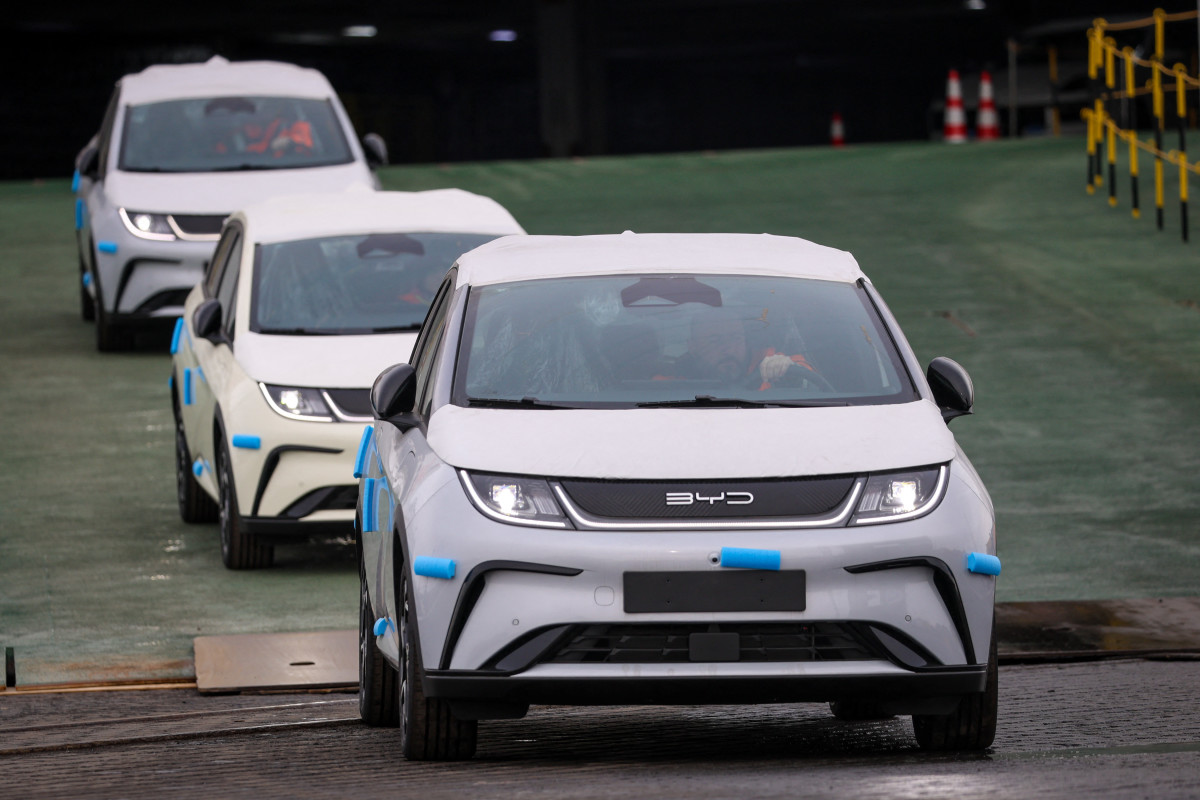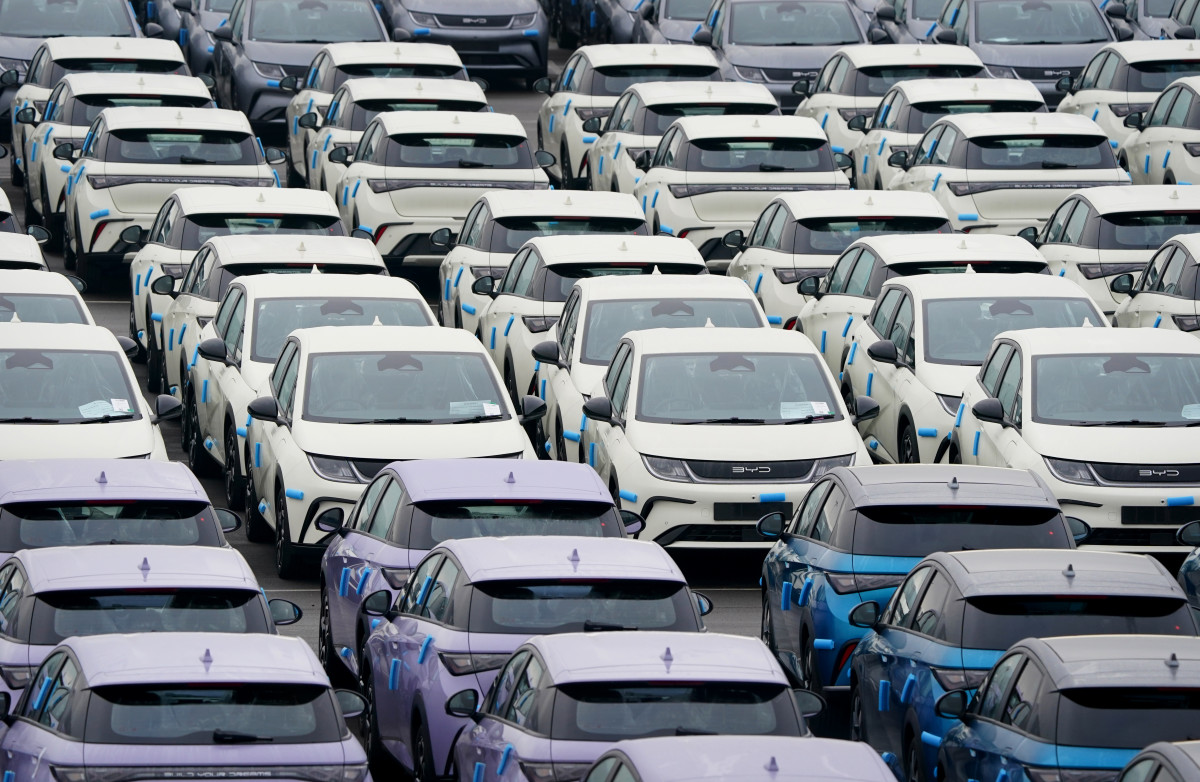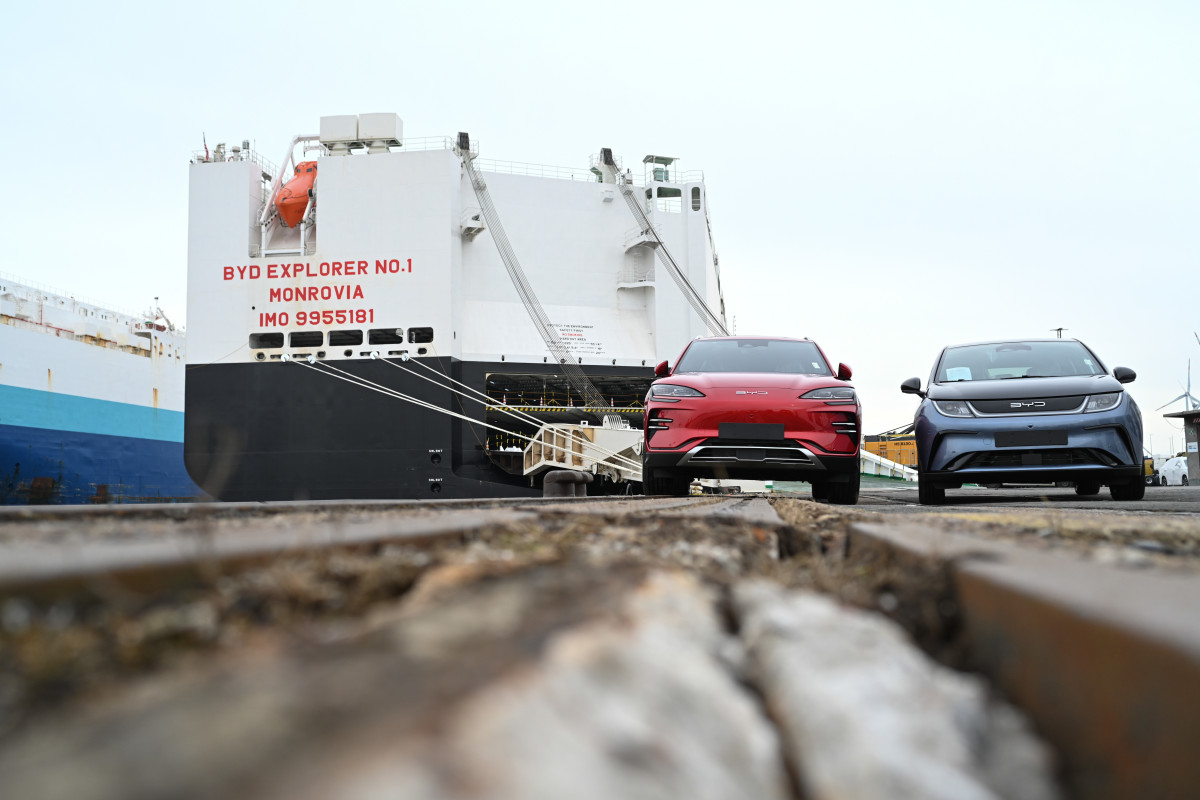
Chinese auto imports and EVs are a hot topic both in the U.S. and abroad, as the idea of cheap imports by Chinese automakers competing with western brands has experts and lawmakers worried to the core.
However, according to a new report, Chinese cars are already causing problems in one key market way before they can reach customers.
Related: Ferrari is making a high-performance investment into its electric future

According to a report by the Financial Times, auto imports are piling up at European ports, with some officials going as far as calling them "car parks," as automakers and distributers navigate a slowdown of sales and a bottleneck in Chinese automakers' supply chains.
Executives representing the ports have blamed Chinese automakers for clogging the ports, as they send cars to destinations without ordering further transportation. According to executives representing the Port of Antwerp-Bruges, the busiest port for car imports for all of Europe, cars arrive at the port with nowhere to go.
“Car distributors are increasingly using the port’s car parks as a depot. Instead of stocking the cars at the dealers, they are collected at the car terminal,” executives representing the Port of Antwerp-Bruges told the Financial Times.

According to supply chain experts and car industry executives on the ground, Chinese automakers aren't selling their wares fast enough, with some cars spending up to 18 months before finding a buyer or being transported elsewhere.
China Passenger Car Association secretary-general Cui Dongshu told the Financial Times that booking inland shipping within Europe has been difficult for Chinese automakers. Additionally, he noted that the current "guerrilla warlike" car export strategy that Chinese automakers are practicing has the ability to throw themselves "into an unfavourable situation."
The situation at the ports comes as automakers in China such as BYD (BYDDY) , XPeng (XPEV) , and the state-owned SAIC increase their exports to Europe as part of an effort to keep their factories running and to capitalize on demand for low-cost EV in the region. The number of cars exported by Chinese manufacturers into Europe is 58% higher when compared to the same time in 2023, with most of the units making their way onto shores in Belgium, the United Kingdom, Germany and the Netherlands.
More Business of EVs:
- A full list of EVs and hybrids that qualify for federal tax credits
- Here’s why EV experts are flaming Joe Biden’s car policy
- The EV industry is facing an unusual new problem
At a roundtable meeting with industry leaders in Paris on April 7, Chinese commerce minister Wang Wentao said that accusations of “overcapacity” were “groundless," and also touted that innovation and "perfect" supply chains were behind their performance.
However, the complete opposite can be seen on the ground in Europe's port of entries. Brands like BYD are building teams in Europe from scratch and dealing with real-world logistical challenges. Those working on their logistics noted that they have struggled to find haulage companies to prioritize their vehicles since Chinese brands are newcomers to the European market.
One person familiar with the situation said that "lack of trucks" was a common problem, as most were reserved for hauling vehicles from other brands like Tesla.
“Any new brand will be facing this issue, if you don’t have scale, if you don’t have regular deliveries, then you are not the [trucking groups’] largest clients.”
Related: Veteran fund manager picks favorite stocks for 2024







